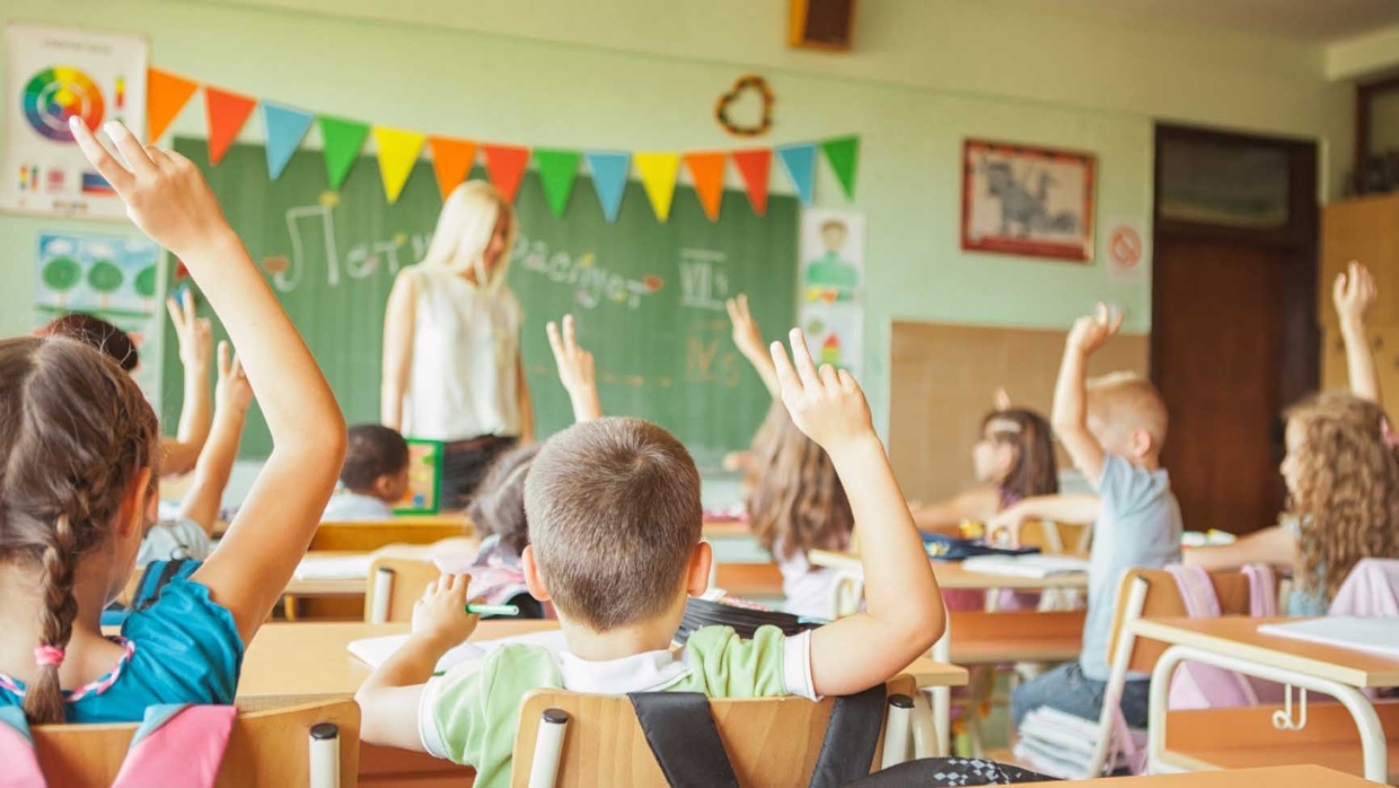Achieve Academic Success with Primary Science Tuition Singapore
Achieve Academic Success with Primary Science Tuition Singapore
Blog Article
Discover the Vital Benefits of Recognizing Primary Scientific Research for Young Learners
The importance of key scientific research education and learning for young learners extends much past simple knowledge acquisition; it serves as an essential pillar in creating vital abilities such as crucial reasoning, analytic, and creativity. Engaging with scientific principles via interactive and inquiry-based tasks not only cultivates interest yet likewise lays the foundation for durable, certain learners.
Enhancing Crucial Assuming Skills
Promoting critical assuming skills in young learners is essential for their cognitive growth and future scholastic success. Vital thinking makes it possible for kids to evaluate details, review proof, and make notified decisions, which are essential skills in today's information-rich culture. By participating in scientific query, young students can boost these skills as they explore concepts through reasoning, observation, and trial and error.
In key scientific research education and learning, instructors can facilitate critical thinking by motivating trainees to ask concerns, formulate hypotheses, and carry out experiments. This hands-on method enables youngsters to practice analytic and create logical thinking skills. For instance, when trainees examine the residential properties of products or the principles of activity, they learn to analyze their searchings for seriously and draw conclusions based on evidence.
In addition, conversations and joint tasks can promote vital thinking by offering possibilities for students to express their ideas, obstacle presumptions, and consider diverse point of views. By developing a supportive environment that values inquiry and representation, instructors can support vital thinking abilities that equip young learners to become independent thinkers and lifelong learners. Eventually, improving these abilities lays a robust structure for their future academic undertakings and personal growth.
Promoting Inquisitiveness and Expedition

Main science education offers an organized atmosphere where young students can discover different phenomena via hands-on experiments and observations. By allowing them to connect with materials and participate in inquiry-based discovering, educators produce possibilities for youngsters to develop hypotheses, check their concepts, and reason. Such experiences support a feeling of wonder and enjoyment about science.

Building Confidence in Trouble Fixing
Building confidence in analytical is a vital element of main scientific research education that encourages young learners to approach challenges with strength and creative thinking - primary science tuition Singapore. When kids are motivated to involve with scientific principles with hands-on tasks and inquiry-based discovering, they establish important skills in important thinking and analysis. This procedure not only enhances their understanding of scientific concepts however likewise promotes a sense of ownership over their understanding
To construct self-confidence, instructors ought to create a helpful setting where blunders are viewed as opportunities for development instead than failures. This motivates students to take dangers and explore different remedies to troubles. By giving scaffolding and advice, instructors can assist students browse complicated jobs, slowly raising their freedom in problem-solving situations.
In addition, collaborative discovering experiences, such as group tasks or experiments, can further enhance pupils' confidence as they discover to articulate their ideas and listen to others' viewpoints. These communications nurture social abilities and strengthen the concept that analytic is often a collective endeavor. Eventually, growing confidence in analytical prepares young students for future academic challenges and furnishes them with the devices essential for long-lasting discovering.
Urging Creative Thinking and Innovation
In the realm of key science education, motivating creativity and development is crucial for cultivating a dynamic understanding environment. By cultivating a culture where young learners can discover concepts and experiment easily, teachers help trainees establish crucial thinking skills and an enthusiasm for discovery. Creativity in scientific research urges kids to ask questions, develop hypotheses, and involve in hands-on tasks that stimulate their imagination.
Incorporating flexible tasks and inquiry-based discovering right into the curriculum enables pupils to reveal their one-of-a-kind perspectives and remedies. When tasked with solving an issue related to their setting, students can brainstorm multiple techniques, leading to creative end results that showcase their creativity. This not just grows their understanding of clinical principles however additionally imparts a feeling of possession over their learning process.
Additionally, imaginative scientific research education supports collaboration amongst peers, as pupils typically share ideas and develop on each other's understandings - primary science tuition Singapore. This joint spirit advertises not only development however additionally essential social skills. Therefore, by focusing go to website on creativity and advancement in main scientific research education and learning, we encourage young learners to assume critically, embrace obstacles, and visualize possibilities, laying a solid structure for long-lasting understanding and expedition
Planning For Future Discovering Challenges
Young students' ability to browse future knowing difficulties hinges on a strong structure in key scientific research education and learning. This fundamental understanding furnishes trainees with vital assuming skills and an find out here organized approach to problem-solving, essential for taking on complicated concerns in an ever-evolving world. Key scientific research fosters inquiry-based learning, motivating pupils to ask questions, check out theories, and involve in hands-on experiments.
As they create these abilities, students end up being experienced at evaluating information, recognizing patterns, and attracting informed final thoughts. Such competencies are vital not just in clinical fields yet likewise in technology, engineering, and math (STEM), where interdisciplinary understanding is increasingly important.
Furthermore, primary science education cultivates a sense of interest and durability in young students, allowing them to see challenges as chances for development. As they come across and get rid of barriers in their scientific expeditions, they develop self-confidence in their capability to innovate and adapt.
Inevitably, a strong foundation in primary scientific research not only prepares young learners for scholastic searches but additionally equips them with the tools essential for long-lasting understanding and flexibility in a rapidly altering international landscape. By buying key scientific research education and learning, we are purchasing the future potential of our learners.
Verdict
Recognizing main scientific research is essential for young learners, as it promotes important reasoning, curiosity, and creativity. Inevitably, the advantages of primary scientific research education and learning prepare youngsters for future academic searches and impart lifelong knowing habits vital for prospering in an ever-evolving globe.
The relevance of main scientific research education and learning for young students expands much beyond plain understanding procurement; it i thought about this serves as a fundamental column in developing important abilities such as important thinking, analytic, and imagination. By creating a supportive environment that values query and representation, teachers can nurture critical thinking skills that equip young students to end up being independent thinkers and lifelong students. Thus, by focusing on creative thinking and innovation in main science education, we empower young students to think critically, welcome obstacles, and envision possibilities, laying a solid structure for lifelong understanding and exploration.
Young students' ability to browse future learning challenges hinges on a solid foundation in main science education and learning.Recognizing primary scientific research is important for young learners, as it promotes crucial reasoning, inquisitiveness, and imagination.
Report this page